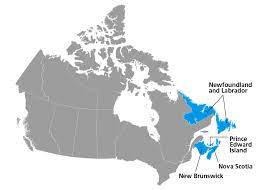Germany recently passed a new immigration law, signalling a fundamental shift in the country’s approach to immigration and integration. The bill intends to modernise and streamline the country’s immigration system, making it more flexible and accessible to anyone looking to relocate to Germany. The extension of skilled worker paths, the simplification of immigration processes, and the promotion of language and integration training for immigrants are among the key features.
The new immigration law intends to fulfil labour market demands and encourage economic progress. Germany wants to enrich the nation’s cultural diversity by attracting brilliant individuals worldwide and supporting their integration into German culture.
Fundamental Amendments to the Immigration Law in Germany
- Fundamental Amendments to the Immigration Law in Germany
- Benefits of new immigration law in Germany
- Final Thoughts
Opportunity card
The new immigration law includes a new “opportunity card” and related points system that permits foreigners who do not yet have a job lined up to come to Germany for a year to look for work. You need an occupational qualification or a university degree to obtain this card.
The cards will be given to those who meet various criteria, for which they will be given points. They could include German and/or English language abilities, existing ties to Germany, and possibly accompanying life partners or spouses on the German labour market. The opportunity card will allow you to work for 20 hours weekly while you seek a suitable position and permanent employment.
Reduced residency requirements
Instead of the current eight-year minimum stay in Germany, the proposed new German citizenship legislation revisions suggest that five years of residency is sufficient to qualify for citizenship. This reduction allows eligible persons to become citizens more quickly, promoting a sense of affiliation and integration.
Furthermore, the proposed legislation address the citizenship rights of children born in Germany to foreign parents. Currently, such children are granted German citizenship if at least one parent has lived in Germany for eight years before birth. This appears to be changing, as the current measure intends to decrease this need to five years.
Acceptance of dual/multiple citizenship
The new immigration law in Germany proposes that multiple citizenship be accepted. This means applicants do not have to renounce their original citizenship when obtaining a German passport. This move is especially crucial for immigrants who came to Germany with the intention of returning to their home nations. It allows you to obtain German citizenship without giving up your ties to your home country.
Furthermore, it is noteworthy that under the new immigration law bill, children who acquire German citizenship through this revised provision will also retain their parents’ citizenship. This dual citizenship approach acknowledges and respects the cultural heritage and ties to the parent’s country of origin while granting the children the rights and privileges associated with German citizenship.
Citizenship law reform
During a parliamentary debate, Martin Rosemann of Chancellor Olaf Scholz’s SPD said, “The well-qualified young people from around the world are not exactly queuing up to come to work in Germany.” “We must woo them and provide them with a long-term perspective.” That is why we will also change the citizenship statute.
The skilled immigration bill is part of Scholz’s government’s initiative to liberalise conditions for non-Germans in the country. A new citizenship law will also make it easier for non-EU citizens to enter the country.
Recognition of degrees
The requirement to have degrees Germany recognizes has long been a key barrier to immigration. With the new law, skilled immigrants will no longer be required to have their degrees recognized in Germany.
They are good to go as long as they can prove they have at least 2 years of experience and a state-recognized degree in their country of origin. Someone with a job offer can travel to Germany and start working while their degree is still recognised.
Refugees integration
Those awaiting asylum approval, have the necessary qualifications and a work offer and will be able to enter the German labour market.
This would also allow them to pursue vocational education. The same adjustment applies to visitors on a tourist visa. They will not be obliged to leave the country before returning to work.
Benefits of new immigration law in Germany
1. More opportunities: The law establishes a more inclusive and flexible system. It allows qualified people worldwide to contribute their experience to the German labour market. This increases innovation, economic growth, and competitiveness in various industries.
2. More refugee integration: The law emphasizes the integration of refugees into German society. It assists refugees in reconstructing their life, contributing to the community, and creating self-sufficiency by providing language and integration training. The new law also supports immigrants’ family reunification and access to school and healthcare. This will benefit both refugees and society as a whole, promoting cultural variety and social cohesiveness.
3. Promotion of strong ties: The new law allows for dual or multiple citizenship, allowing people to keep their German citizenship while still having citizenship in their place of origin. This provision acknowledges the international structure of modern society, allowing immigrants to keep strong ties to their ancestors while promoting their participation in global issues. It also fosters international business, diplomatic contacts, and cultural interchange.
4. Opportunity for cardholders: The law creates an “Opportunity Card” that grants temporary residence to those who do not qualify for other visa categories but wish to work or study in Germany. This card enables skilled employees and students to contribute to the German economy and society, creating a win-win situation for both parties.
Final Thoughts
The new immigration law’s introduction marks a crucial moment in Germany’s approach to immigration and integration. The law addresses labour market needs while fostering social cohesion by expediting visa processes, attracting talented workers, and providing language and integration assistance. Furthermore, its emphasis on family reunion, foreign qualification recognition, and entrepreneurship fosters stability and economic progress. Furthermore, the availability of dual/multiple citizenships and the Opportunity Card demonstrates Germany’s commitment to inclusion and global participation. Finally, Germany’s progressive immigration law demonstrates its commitment to creating a more diverse and affluent nation where immigrants can thrive.






